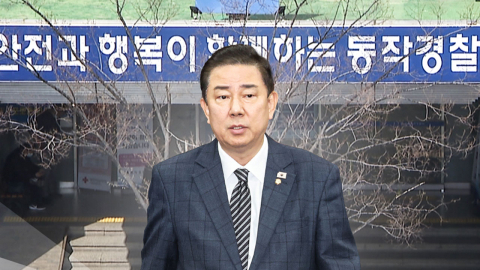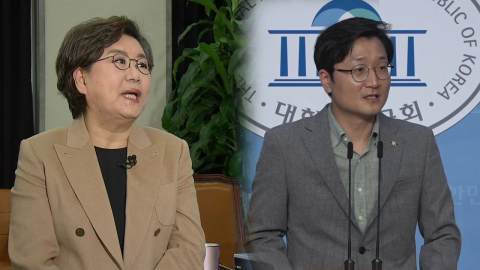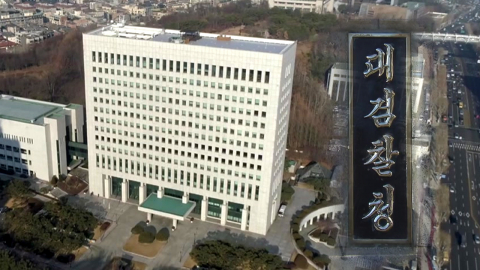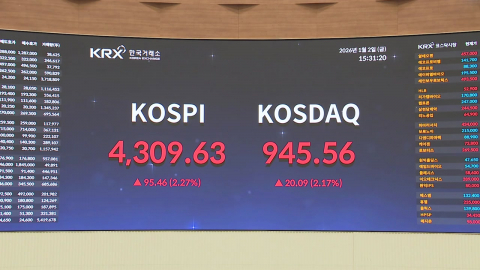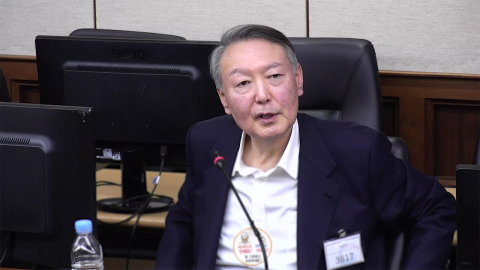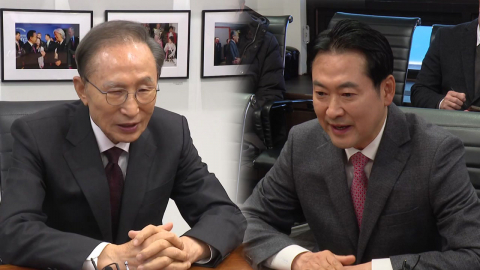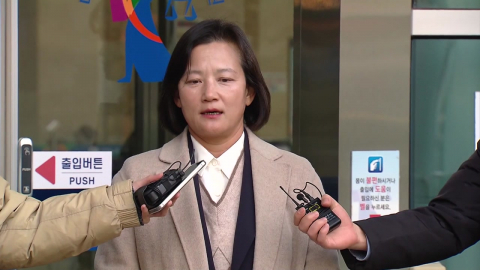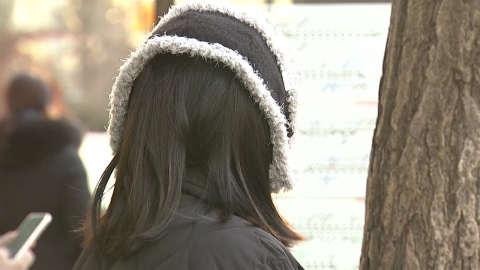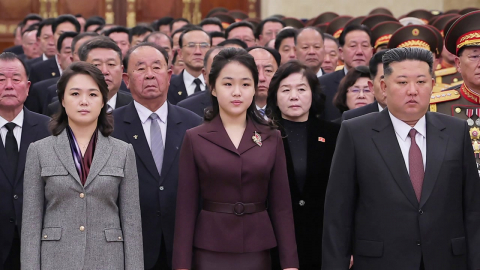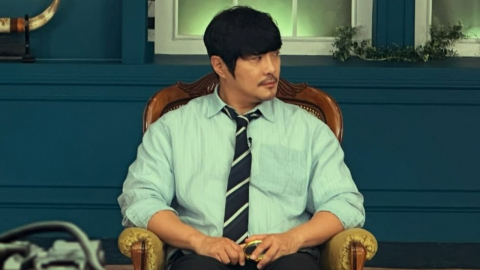-
퇴근길 서울 종각역 3중 추돌…1명 심정지·8명 부상재생

-
오늘 오후 6시 10분쯤 서울 종각역 인근에서 3중 추돌 사고가 나면서 인명 피해가 다수 발생했습니다. 지금까지 8명이 다친 것으로 파악된 가운데 그중 한 명이 심정지 상태로 병원에 이송됐습니다. 취재기자 연결합니다. 정현우 기자, 사고 상황 설명해주시죠. [기자] 종각역 인근에서 들어온 그림부터 보겠습니다. 차 한 대가 인도 쪽으로 돌진한 듯 보이고, 소방관들이 차에 사람이 있는지 확인하는 듯한 모습입니다. 사고 충격이 워낙 강했는지 차량 파편들이 주변에는 흩어진 상황입니다. 서울 종각역 상황을 보시면, 소방차 여러 대가 도로변에 줄지어 서 있는 모습을 볼 수 있습니다. 한눈에 보아도 큰 사고가 발생한 것으로 보이는데요. 퇴근길인 오늘 오후 6시 5분, 종각역 인근에서 3중 추돌 사고가 발생했습니다. 인명 피해가 다수 발생한 상황으로, 경찰과 소방이 현장 조치를 하고 있기 때문에 차량끼리 어떻게 충돌했는지 정확한 상황은 좀 더 확인이 필요합니다. 다만 소방에서는 전봇대를 들이받은 차량, 그리고 불이 붙은 차량도 있는 것으로 보고 있습니다. 또 사고 차량 가운데 택시 한 대가 인도로 돌진한 것으로 추정됩니다. 자세한 것은 현장 조치 완료 뒤 확인될 전망입니다. 현재까지 인명 피해는 8명으로 파악되고 있습니다. 한국인 4명과 외국인 4명으로 확인됐습니다. 그중 한 명이 심정지 상태로 병원에 이송된 것으로 확인됐습니다. 일대 CCTV를 보면 교통이 통제되고 있는 상황으로 보입니다. 지금까지 사회부에서 YTN 정현우입니다. ※ ’당신의 제보가 뉴스가 됩니다’ [카카오톡] YTN 검색해 채널 추가 [전화] 02-398-8585 [메일] social@ytn.co.kr
-
1억 녹취' 이튿날 강선우 "김경 공천해야"…회의록 결정타재생
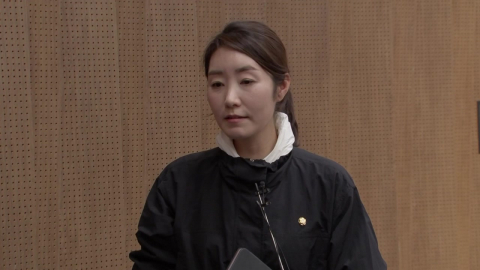
-
더불어민주당이 강선우 의원을 제명한 데는, 공천에 관여한 적 없다는 '거짓 소명'이 결정적 계기가 된 것으로 파악됐습니다. 강 의원은 '1억 원 녹취' 이튿날 해당 시의원의 단수 공천을 주장했다고 합니다. 황보혜경 기자입니다. [기자] 이른바 '1억 원 금품 수수' 의혹이 보도된 지난달 29일, 강선우 의원은 SNS에 빠르게, 조목조목 해명했습니다. 공천을 약속하고 돈을 받은 사실이 없다면서, 본인 지역구인 강서 갑 후보자 공천이라 자신은 논의에서 배제됐고 발언권도 제한됐다고 강조했습니다. 하지만 당시 서울시당 공관위 회의에서, 강 의원은 1억 원 공여자로 지목된 김경 시의원을 단수 공천하자고 말한 것으로 전해졌습니다. 주택 다섯 채를 보유해 '컷오프' 대상이었던 김경 시의원에 대해, 강선우 의원은 점수가 가장 높다고 힘을 실었다고 합니다. [문 정 복 / 더불어민주당 의원(JTBC '장르만 여의도' 유튜브) "공관위에서의 강선우 의원 발언이 조금 문제가 됐었나 봐요. '김경 시의원을 단수 공천 주자' 이런 발언이 나왔었나 봐요.] 이런 내용은 서울시당 공천관리위원회 회의록에 고스란히 적혔고, 민주당 윤리감찰단은 일종의 '거짓 소명'으로 판단했습니다. 당 최고위는 이를 근거로 이미 탈당을 선언한 강선우 의원에게 복당 가능성까지 막은, 최고 수위의 제명 징계를 내렸습니다. [박수현 / 더불어민주당 수석대변인(SBS라디오 '김태현의 뉴스쇼') : 서울시당에 그 당시 공천관리위원회 회의록 같은 게 있을 것 아니겠어요. 윤리감찰단장으로부터 어제 보고를 받고 그런 정도의 결정(제명)을 한 것입니다.] 김병기 전 원내대표는 당시 회의에 불참했는데, 민주당은 비위 사실을 인지하고도 당에 알리지 않은 점을 문제로 보고, 윤리심판원에 징계 심판을 요청했습니다. 도덕성을 뒤흔드는 여권 대형 악재에, 국민의힘은 돈을 받고 공천장을 판 거라고 공세 수위를 끌어올렸습니다. 김병기 전 원내대표가 구의원들로부터 수천만 원의 정치자금을 받았다는 의혹도 거론하며, 의원직을 사퇴하라고 촉구했습니다. [장 동 혁 / 국민의힘 대표 : 탈당 도주극에 야밤의 '제명 쇼'까지 더불어민주당의 공천헌금 사태가 점입가경입니다. 강선우 김병기 두 사람 모두 즉각 의원직에서 물러나야 합니다.] 국민의힘은 또, 금품 수수 탄원서를 이재명 당시 당 대표가 묵살했다고 부각하며, 이 대통령 역시 수사 대상이라고 압박했습니다. 민주당은 탈당을 선언한 강선우 의원을 속전속결, 제명하며 논란 확산 차단에 주력하고 있습니다. 하지만 당시 당 대표였던 이재명 대통령 이름까지 언급되는 등 파장을 두고 긴장감도 감돌고 있습니다. YTN 황보혜경입니다. 영상기자 : 이성모 온승원 영상편집: 김희정 디자인 : 지경윤 ※ '당신의 제보가 뉴스가 됩니다' [카카오톡] YTN 검색해 채널 추가 [전화] 02-398-8585 [메일] social@ytn.co.kr
-
’서해 피격’ 일부 항소…박지원·서욱 등 무죄 확정재생

-
1심에서 전원 무죄가 선고된 서해 공무원 피격 사건에 대해 검찰이 일부 항소를 결정했습니다. 박지원 전 국가정보원장과 서욱 전 국방부 장관은 무죄가 확정됐습니다. 법조팀 취재기자 연결합니다. 안동준 기자! 검찰이 고심 끝에 일부 항소로 결론을 내렸군요. [기자] 네, 항소 시한을 불과 6시간 남짓 남겨두고 결과가 나왔는데요, 서울중앙지검은 증거관계와 관련 법리를 면밀히 검토하고 대검과의 협의를 거쳐, 허위공문서 작성 혐의를 받는 서훈 전 청와대 국가안보실장과 김홍희 전 해양경찰청장에 대해서만 항소를 제기하기로 결정했다고 밝혔습니다. 월북 여부가 불분명한 상황에서 자진 월북한 것으로 오인될 수 있는 수사결과를 발표하고, 이로 인해 망인과 유족의 명예를 훼손했다고 볼 수 있다는 겁니다. 나머지 직권남용 권리행사방해 혐의에 대해서는 실익을 고려해 항소하지 않기로 했는데요, 이로써 박지원 전 국가정보원장과 서욱 전 국방부 장관, 노은채 전 국정원 비서실장은 무죄가 확정됐습니다. [앵커] 이번 결정, 어떻게 해석할 수 있을까요. [기자] 법조계에서는 검찰이 항소를 하지 않을 거란 관측이 우세했었는데요, 앞서 무죄 판결이 나온 뒤에 이 사건을 고발했던 국정원이 고발을 취하하기로 했고, 이재명 대통령과 김민석 총리가 국무회의에서 잘못된 기소라면서 항소 포기에 무게를 실었기 때문입니다. 정성호 법무부 장관도 오늘 기자들과 만난 자리에서 구체적인 사건에 개입하지 않는 게 자신의 원칙이라며 수사 지휘 가능성에 선을 그으면서도 이 사건은 "전형적인 정치 보복"이라며, 항소 포기 결정에 힘을 싣는 취지의 언급을 하기도 했습니다. 다만, 이미 수사팀이 항소 의견을 냈고 유족 측이 강하게 항소 제기를 원하는 점도 고려한 판단으로 풀이됩니다. [앵커] 일부 항소하긴 했지만, 유족 측에서는 항의가 거셀 거 같은데요. [기자] 네, 고 이대준 씨 유족 측은 검찰의 결정에 대해 ’꼼수’라며 강하게 비판했습니다. 국가는 한 치의 허점 없이 국민의 생명을 보호해야 함에도 스스로 국가이기를 포기한 이번 항소 포기 주장은 책임을 물을 중대한 범죄라고 반발했습니다. 또, 오늘 결정을 용납할 수 없어 관련자 전원을 고발하겠다고도 밝혔습니다. 앞서 유족 측은 오늘 국회에서 기자회견을 열고 검찰의 항소를 촉구하기도 했는데요. 현 정부에서는 진실 규명과 책임 추궁을 기대하기 어렵다며 국제 사회에 사건을 공론화하기 위해 트럼프 미국 대통령에게 서신을 보냈다고 밝혔습니다. 앞서 검찰은 2020년 북한군에 살해된 해양수산부 공무원 사건을 은폐하고 자진 월북으로 조작한 혐의로 문재인 정부 안보 라인 5명을 직권남용 등의 혐의로 재판에 넘겼습니다. 지난달 26일 1심 재판부는 발표와 대응 과정에서 일부 판단 착오나 미흡한 점이 있었다 하더라도 이를 형사 처벌이 되는 범죄로 단정하기는 어렵다며 전원 무죄를 선고했습니다. 지금까지 사회부에서 전해드렸습니다. 영상편집 : 김민경 ※ ’당신의 제보가 뉴스가 됩니다’ [카카오톡] YTN 검색해 채널 추가 [전화] 02-398-8585 [메일] social@ytn.co.kr



